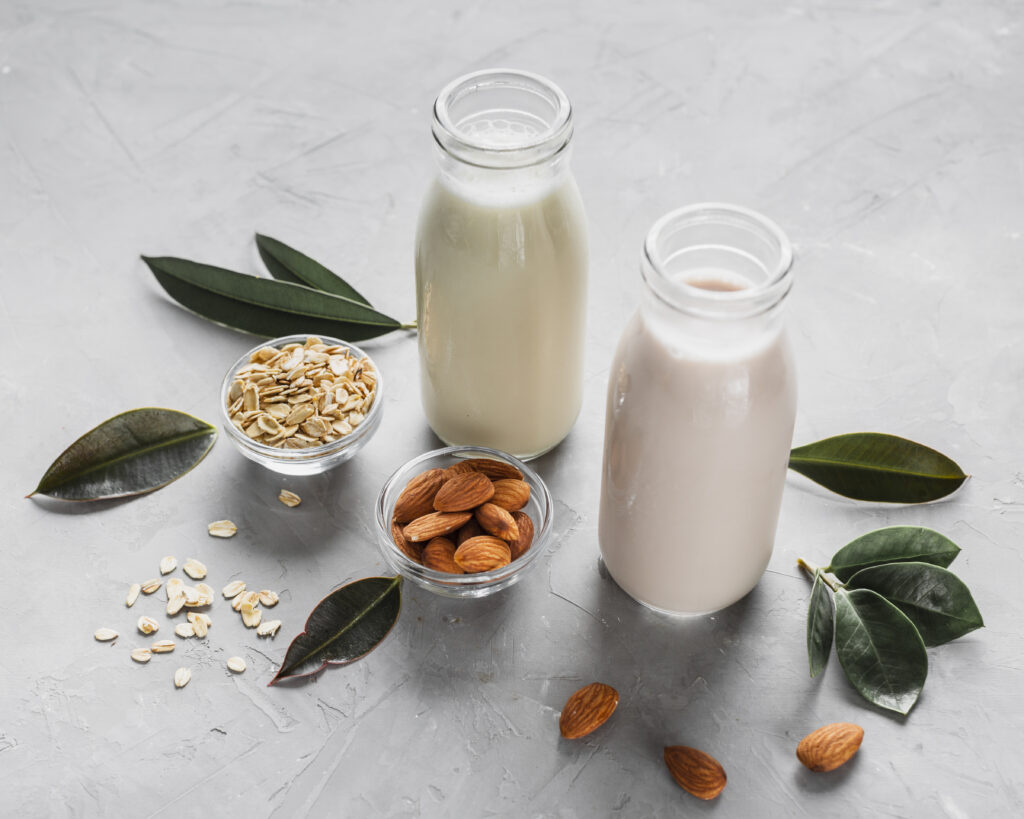Here we are going to share information on the topic “5 Best Supplements to Boost Your Immune System.” Your immune system may be weakened by deficiencies in specific vitamins, such as zinc, vitamin C, and other nutrients. Consuming these vitamins as supplements may aid in maintaining immune system performance.
Your body’s defence mechanism against pathogens such as viruses, poisons, and bacteria is your immune system, which is made up of an intricate network of cells, processes, and substances. The key to avoiding illness and infection all year is maintaining a strong immune system. Choosing a healthy lifestyle that includes eating a balanced diet, getting adequate sleep, and exercising are the most effective ways to strengthen your immune system.
Furthermore, studies have demonstrated that taking supplements containing specific vitamins, minerals, herbs, and other materials might enhance the immune response and possibly offer protection against disease.
Be aware, though, that certain supplements may conflict with over-the-counter or prescription drugs you are taking. Some might not be suitable for those who have specific medical issues. Make sure you consult a medical practitioner before beginning any supplementation.

5 Best Supplements to Boost Your Immune System
These are 5 substances that have a reputation for strengthening the immune system.
1. Vitamins D
- A fat-soluble vitamin that is vital to the health and operation of your immune system is vitamin D.
- Vitamin D reduces inflammation, which aids in promoting an immunological response, and increases the pathogen-fighting capabilities of monocytes and macrophages, two crucial components of your immune defence.
- This crucial vitamin is often lacking in the population, which may have a detrimental effect on immunological function. As a matter of fact, there is a correlation between low vitamin D levels and a higher risk of upper respiratory tract infections, such as influenza and allergic asthma.
- According to certain research, taking vitamin D supplements may enhance immunological responses. In fact, consuming this vitamin may help prevent respiratory tract infections, according to current studies.
- Supplementing with vitamin D significantly reduced the incidence of respiratory infections in those lacking this vitamin and decreased infection risk in those with adequate levels of the vitamin, according to a 2019 evaluation of randomized control trials including 11,321 participants.
This implies a general protective impact.
According to other research, vitamin D supplementation may help patients with some illnesses, such as HIV and hepatitis C, respond better to antiviral therapies.
Most people only need 1,000–4,000 IU of supplemental vitamin D per day, depending on their blood levels; however, those with more severe deficiencies frequently need much larger dosages.
A lot of research has been done on vitamin D and COVID-19 because of how the vitamin affects the immune system. Research has demonstrated that vitamin D helps reduce inflammation and speed up healing in the respiratory system.
A recent fast-review study came to the conclusion that further investigation is required before vitamin D supplementation is advised for COVID-19 prevention and therapy.
Nonetheless, a number of experts in the fields of science and health contend that vitamin D supplements are generally harmless and may even help shield people from the virus.
2. Zinc
Minerals like zinc are frequently included in health items like lozenges and pills that are said to strengthen your immune system. This is so because healthy immune system operation depends on zinc.
Zinc is essential for the growth and communication of immune cells as well as for the induction of inflammation. Additionally, zinc particularly guards the body’s tissue barriers, which aid in preventing the entry of external infections.
- The ability of your immune system to work correctly is greatly impacted by a lack in this nutrient, which increases your risk of infection and disease, including pneumonia.
- Zinc deficiency has been linked to 16 percent of all deep respiratory infections globally, according to a study.
- Around 2 billion individuals worldwide suffer from zinc insufficiency, which is particularly prevalent in older adults. Indeed, deficiencies in this vitamin are thought to affect as many as thirty percent of older people.
- In industrialized nations like North America, zinc deficiency is quite uncommon.
- However, a large number of Americans suffer from a marginal zinc shortage that is linked to either consumption or absorption. Most people who are older are often more vulnerable.
- Zinc supplementation may offer protection against respiratory tract infections, such as the common cold, according to a number of studies.
3. Calcium
Because it plays such a vital role in immunological function, vitamin C is probably the most commonly consumed supplement for infection prevention.
This vitamin improves the capacity of different immune cells to fight infection and promotes their normal function. Additionally, cellular death—which replaces old cells with new ones and helps maintain the health of your immune system—requires it.
- In addition to its anti-oxidant properties, vitamin C also works as a powerful shield against oxidative stress, which is caused by an accumulation of reactive molecules called free radicals.
- Oxidative stress is associated with many diseases and can have a deleterious effect on immunological function.
- It has been demonstrated that taking vitamin C supplements shortens the duration and intensifies upper respiratory tract illnesses, such as the common cold.
- According to a comprehensive analysis of 29 trials involving 11,306 participants, taking regular vitamin C supplements at a daily average dose of 1-2 grammes shortened the duration of colds by 8% for adults and 14% for children.
4. Elderberry
- The effects of black elderberry (Sambucus nigra), which has traditionally been used to treat infections, on immune function are currently being studied.
- Elderberry extract has strong antibacterial and antiviral activity against influenza virus strains and bacterial pathogens that cause upper respiratory tract infections in test-tube experiments.
- Additionally, it has been demonstrated to improve immune system response, which may help lessen the severity and length of colds as well as the symptoms associated with viral infections.
- Supplementing with elderberry supplements significantly reduced virally-induced upper respiratory symptoms in 180 people, according to an analysis of four randomized control trials.
- A previous, 5-day trial conducted in 2004 showed that those with the flu who took 1 tablespoon (15 mL) of elderberry syrup four times a day as a supplement saw symptom improvement four days sooner than those who did not take the syrup and required less medicine.
- Nevertheless, the results of this study may have been skewed because it is out of date and was funded by the company that makes elderberry syrup.
5. Remedy mushrooms
- Since ancient times, medicinal mushrooms have been used to both prevent and treat illness and infections. Numerous varieties of therapeutic mushrooms have been investigated for their ability to strengthen immunity.
- It is known that more than 270 recognised species of medicinal mushrooms strengthen the immune system.
- Certain species of mushrooms have been demonstrated to support immunological function, including cordyceps, lion’s mane, maitake, shitake, reishi, and turkey tail.
- According to some studies, taking supplements containing particular kinds of medicinal mushrooms may improve immune function in a number of ways and lessen the symptoms of a number of illnesses, such as lung infections and asthma.
- For instance, compared to a placebo group, cordyceps medication dramatically decreased the number of germs in the lungs, improved the immune system, and decreased inflammation in mice with tuberculosis, a dangerous bacterial disease.
- Supplementing with 1.7 grammes of cordyceps mycelium culture extract increased the activity of natural killer (NK) cells, a type of white blood cell that fights infection, by a significant 38 percent in a randomized, eight-week study involving 79 people.
Frequently Asked Questions
(5 Best Supplements to Boost Your Immune System)
Which vitamin strengthens the immune system the best?
Answer: According to Hansen, there is evidence that the vitamins B6, C, and E can strengthen the immune system. Your immune system may benefit from a supplement if you are deficient in any of these vitamins.
How can I swiftly strengthen my immune system?
Answer: Vaccines, like the flu shot, increase resistance to certain illnesses. Other strategies to boost your immune system include eating healthily, exercising, keeping a healthy weight, getting enough sleep, quitting smoking, and abstaining from excessive alcohol consumption.
Which basic immune supplements are there?
Answer: Zinc, vitamin D, and vitamin C are some of these. Probiotics, herbal supplements, and other components of nutritional supplements may potentially have an impact on your immune system. You can get enough vitamins, minerals, and other nutrients for a strong immune system by eating a range of nutrient-dense meals.
Which foods work best to strengthen the immune system?
Answer: The development and operation of immune cells have been shown to require certain nutrients, such as vitamin C, vitamin D, zinc, selenium, iron, and protein (including the amino acid glutamine).
What is meant by an immune system booster?
Answer: Immunity boosters: What are they? Products marketed as immunity boosters make the promise that they can strengthen your immune system and reduce your risk of illness. Furthermore, they usually imply that taking the supplements will hasten the healing process if you do become ill.
Are multivitamins able to strengthen immunity?
Answer: However, are multivitamins healthy for you? Among the many health advantages listed on these bottles is their potential to strengthen your immune system. Are multivitamins associated with a stronger immune system, then? They most certainly can, if they have the appropriate vitamins.

Conclusion
(5 Best Supplements to Boost Your Immune System)
To sum up, adding the top five immune-boosting supplements to your diet will greatly strengthen your body’s resistance to disease and infection. Probiotics, zinc, echinacea, and vitamins C and D can help you maintain a healthy immune system and enhance your general wellbeing. But it’s crucial to keep in mind that supplements function best when taken in conjunction with a healthy diet and lifestyle. A healthcare provider should always be consulted before beginning a new supplement regimen.
So, this is how the topic “5 Best Supplements to Boost Your Immune System” has been addressed.
For more information related to these topics,
You may also visit our Instagram page by
Thank you!

